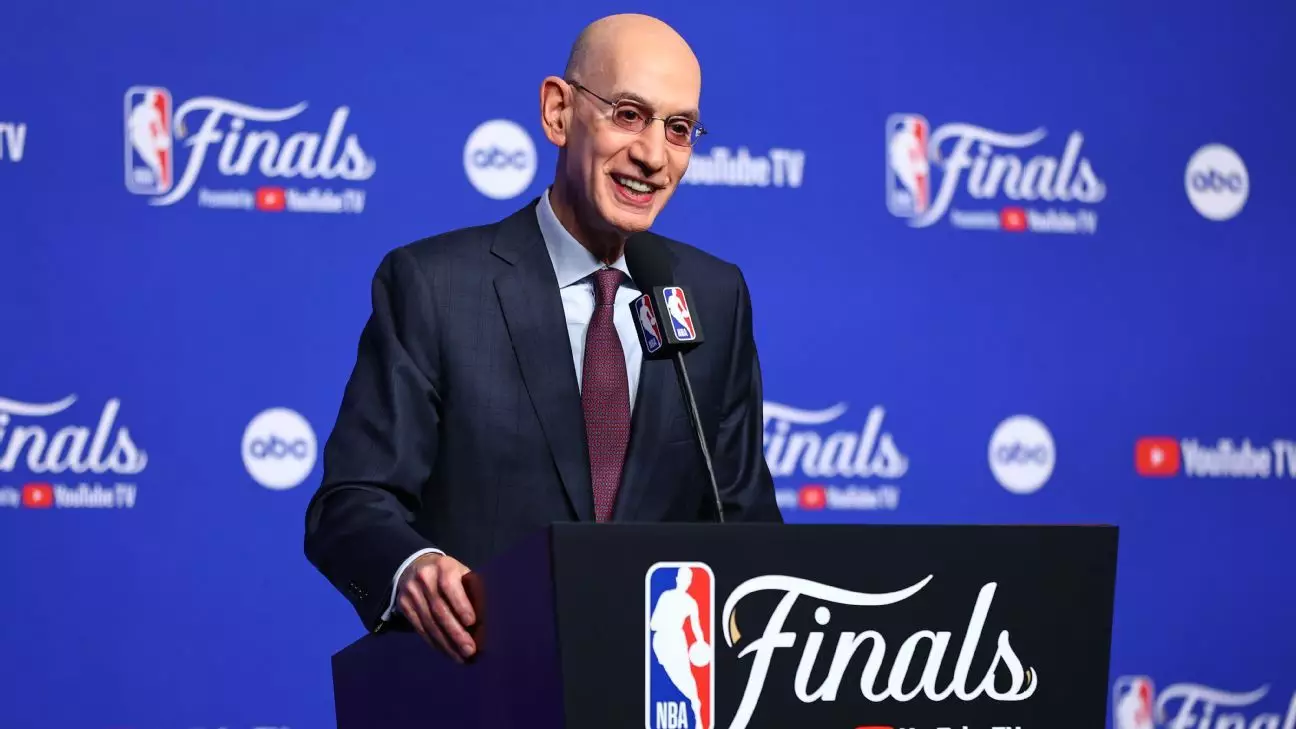In a significant declaration, NBA commissioner Adam Silver has illuminated the league’s ambition to transcend borders by establishing a new basketball league in Europe. This isn’t merely a sideline conversation; it’s an assertion of the NBA’s commitment to global expansion, an idea that has been long gestating within the basketball community. Silver’s recent comments during a community event in Oklahoma City underscore the seriousness and depth of these aspirations. He emphasizes that while enthusiasm is high, the timeline for launching this ambitious league is not imminent—potentially extending two years or more into the future.
This protracted time frame may cause disappointment among players and fans itching for immediate developments; however, the measured approach being adopted is undoubtedly wise. Establishing a new league requires intricate planning and cooperation among numerous stakeholders, including existing European leagues, players, and media partners. The scope of this undertaking cannot be underestimated—it’s about building a sustainable basketball ecosystem that respects existing entities while simultaneously fostering new opportunities.
Creating a Partnership Ecosystem
Silver’s inclination towards collaboration with the EuroLeague and its member teams is particularly noteworthy. Rather than positioning the NBA as a domineering force set to impose a new structure, there is a clear intent to cultivate partnerships. This is crucial in the realm of sports where traditional leagues often view each other as competition rather than partners. By bridging gaps, the NBA is acknowledging not only the rich tapestry of European basketball but also its vast fanbase.
The prospect of forming an NBA-style league in Europe is not merely about replicating the American format. It is equally about respecting the unique cultural and sporting traditions of European basketball. The mention of underserved basketball fans illustrates an understanding that while European leagues have their merits, there’s a burgeoning appetite for the NBA experience—intense competition, high-profile athletes, and electrifying entertainment.
Seizing the Moment in Global Basketball
The timing for such an endeavor is also critical. Silver hinted that the forthcoming 2028 Los Angeles Olympics could be a prime moment to unveil the new league, capitalizing on the heightened global interest in basketball. This is a strategic opportunity; global events often act as litmus tests for the market viability of new leagues. The Olympics will not only spotlight international competition but also invite the world to witness the potential growth of basketball in Europe, particularly when showcased against the backdrop of an NBA-affiliated European league.
The focus on cities like London, Manchester, Rome, and Munich highlights the NBA’s strategic approach to establishing a league in urban centers that already feature passionate basketball fans and vibrant cultural atmospheres. Each of these cities brings a distinct flavor, which could contribute to a diversified league model. This intentional consideration of location exemplifies forward-thinking by prioritizing markets that can support and sustain such an initiative.
The Role of International Stars
Moreover, the increasing presence of European talent in the NBA has amplified the urgency of this project. The league’s roster features a staggering array of athletes from Europe, including icons like Nikola Jokić, Giannis Antetokounmpo, Luka Dončić, and the rising star Victor Wembanyama. Each of these players not only brings exquisite talent but also carries immense cultural significance. Their success stories serve as ambassadors of the game, advocating for the sport’s growth in their home countries.
The integration of these players into the NBA has already revealed the market’s potential, showcasing how deeply intertwined the fabric of European basketball is with the NBA. Their backgrounds resonate with fans back home, enhancing the prospects for the NBA’s expansion under a new European league model.
As the discourse evolves and conversations between the NBA and FIBA continue, it is clear that we are on the precipice of a transformative moment in basketball history. This prospective league could redefine how basketball is consumed and experienced, pressing the boundaries of nationalistic leaguer structures. With dedicated efforts and a vision that respects the global significance of the sport, the NBA is setting the stage for a vibrant new chapter in basketball’s legacy.

